This is an easy quiz. When did I take this photo?

This is an easy quiz. When did I take this photo?

(The Shoe of a Lifetime) A French Arthouse film
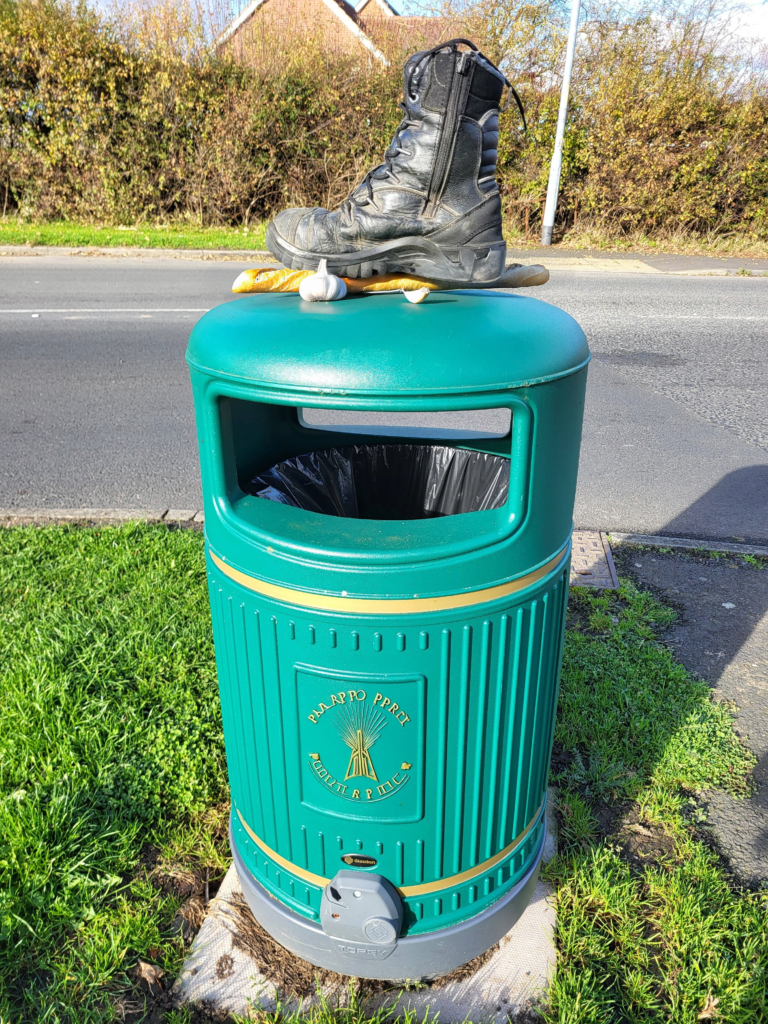
In a small, forgotten quarter of Paris, an unremarkable alley harbours a peculiar sight: a solitary shoe resting atop a weathered bin. This seemingly mundane object becomes the focal point of a poetic journey in Le Soulier d’une Vie.
As the seasons change, we witness fleeting moments from the lives of the residents who cross paths with the shoe. There’s Élodie, a dancer grappling with the loss of her passion; Pierre, an aging baker reminiscing about his long-lost love; and Léon, a young boy with an unyielding curiosity. The shoe, a silent witness, absorbs their dreams, secrets, and sorrows.
Through a tapestry of vignettes, the film delves into themes of impermanence, connection, and the beauty found in the mundane. Shot with a delicate hand and a lyrical eye, Le Soulier d’une Vie is a melancholic, yet hopeful reflection on the fragments of life that unite us all.
The new film by acclaimed Swedish film director, Sherburt Bergmun.
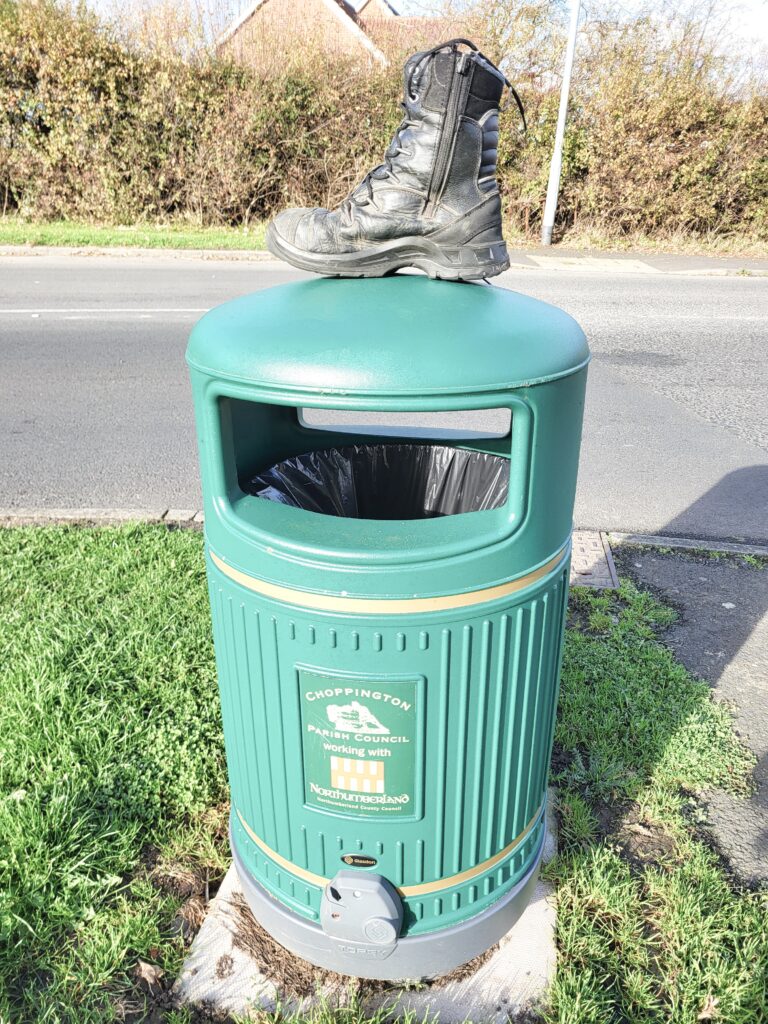
‘Skon På Papperskorgen’ (‘The Shoe on the Bin’). What begins as a seemingly innocent piece of footwear dangling on top of a waste receptacle soon turns into the calling card of a madman.
Police inspector Kalle Alexander is called to the scene of a crime where the body of a young man lies dead. Nearby a note attached to one singular shoe atop a bin speaks of cataclysmic actions and further deaths in the future. He has very little to go on but after ten years in the job, he’s more than ready and prepared to get started.
He has a drinking problem, he smokes too much, he can’t make connections with anyone and leads a solitary life since his wife ran off with the local chemist. There’s a cat from a neighbouring flat who may well be his only friend.
When you’re faced with life and death though, friends are the last thing that you need. Kalle will find himself both in the firing line and gripping the trigger as he chases leads down in the most disgusting and darkest recesses of the city: he’ll scour every shoe shop, browse every Etsy listing in the surrounding area and he’ll even make his explosive presence known at the shoe factory downtown.
Alfred Binko (the award-winning actor of ‘Get up, Get off’ and ‘The Room around the Curtains’) stars in a career-defining role alongside veteran character actors Klaudia Shinn (‘Carry on, Mr. Scrappenberg’), Veronika Graaten (‘Solitary Mammals’) and Dhillon Ratiz (‘A Man for Many Flowers’). Ably abetted by the deft and kinetic cinematography of Shalein Tracker and a plump orchestral score by Gérard Picko, ‘The Shoe on the Bin’ is a modern Scandinavian classic that will show you the heart of darkness that can lie within the wonderland of everyday menace.
I am on holiday, but I still need to make one more post this month to earn a bean. The obvious thing to do is to post a massive gallery of holiday photos and be all smug about where I am and what I’m doing.
I respect you both too much to do that. Instead I will post one carefully chosen picture, which is a self-portrait I took using an underwater camera while I was wearing a snorkel mask. The rest of my smugness can be inferred from this if you wish to experience it.

Today, in my work inbox, I received this calendar invitation.
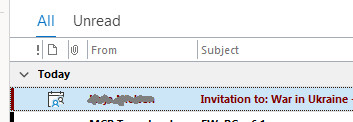
I declined.
Ahh the card games. The classics, who doesn’t enjoy playing the old favourites like snap, Happy Families or Canasta? Well now there’s a ‘new’ game in town, brought to you by Changlish Chranslayshon & Sons Ltd.
DONYKET! A twist on the old classic, Donkey. DONYKET! Don’t forget to ‘off ers your cards’, you don’t want to be left with the ‘Dondey’ and get called Donkey!
DONYKET!
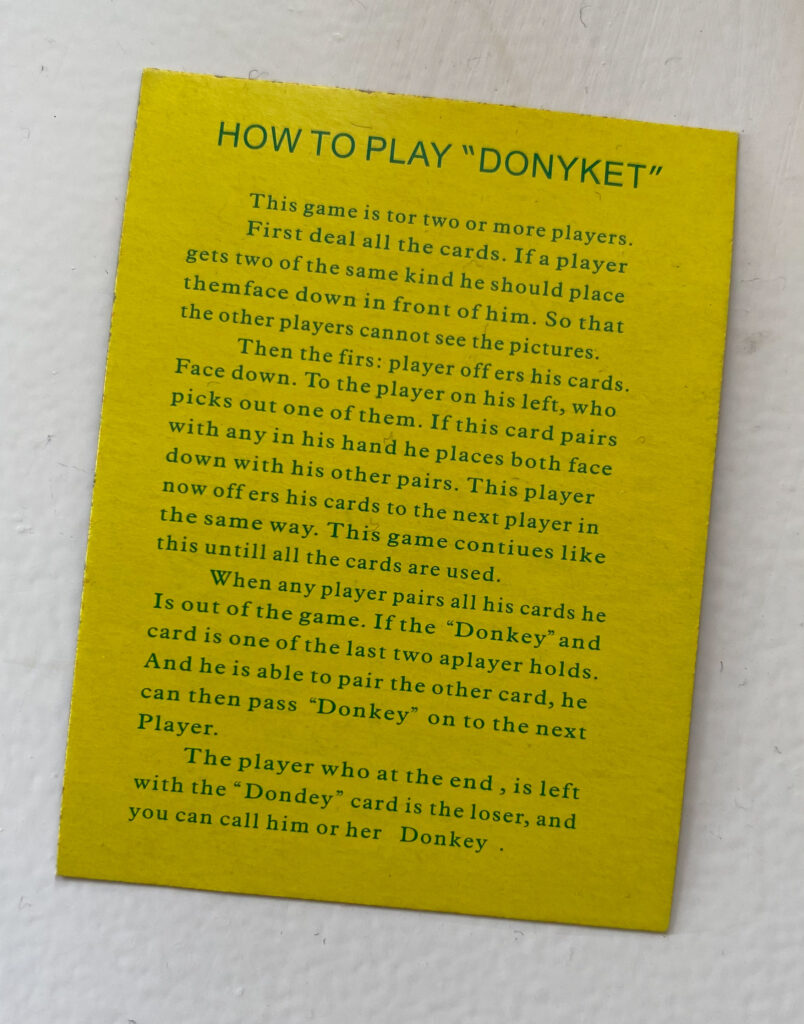
People sometimes ask me: Chris, why did you move to Bordon? What attracted you to this small ex-army town in Hampshire? Was it the abundant woodland? Its proximity to the South Downs National Park? Being in easy reach of the picturesque and charming market towns of Farnham and Petersfield? Being within commuting distance of London while also being less than an hour from the coast?
It was none of these. What brought me to Bordon was enviable hilltop location on the borders of Aragón and Valencia in south eastern Spain, and its delicious red wines, a blend of 75% Tempranillo and 25% Garnacha grapes.
Look at you. I don’t need you.
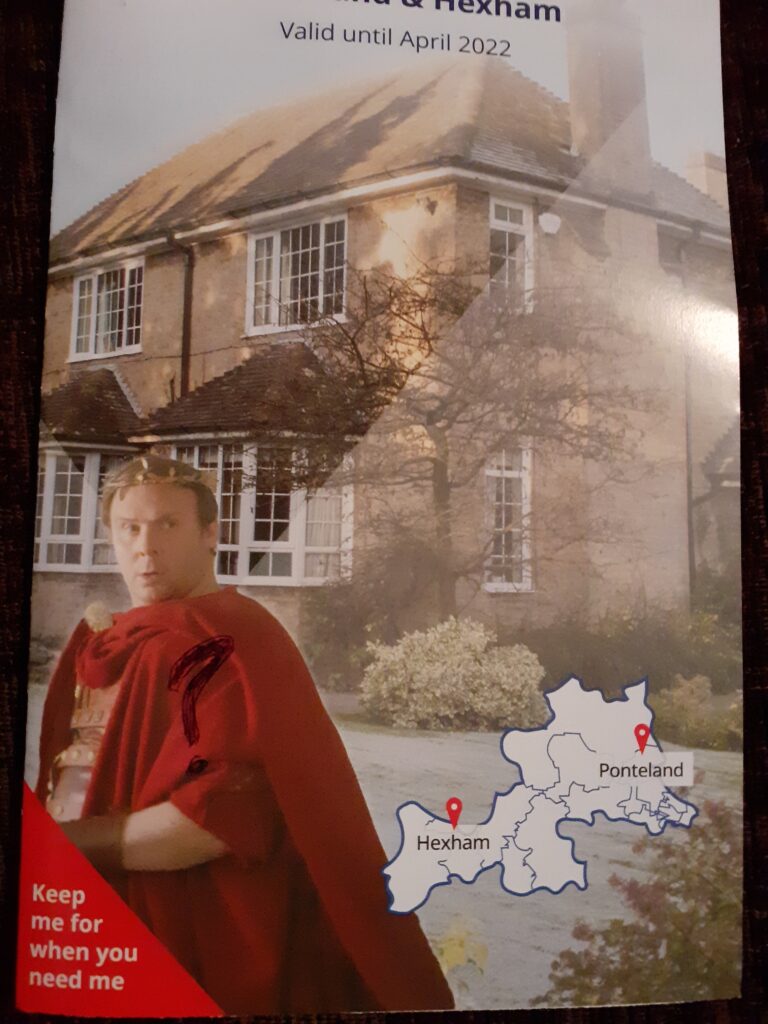
You tell me to ‘keep you for when I need you’ but I’ve got news for you buddy, there will never come a time when I will need you.
I don’t need a Roman. I don’t think I’ve ever asked anyone for a Roman. It’s not as if I’ve been walking down the street in town and thought to myself, “ooo, you know what I could do with right now? A bit of Roman, yeah.” I’m not stuck at work trying to solve a problem and cursing the absence of a centurion to help me through a difficult time. You don’t find me arms aloft, shouting to the heavens, wishing a Roman would swoop along to sort out my bad diet and poor exercise regime.
You look confused and out of breath. Are you surrounding that house so you can lay siege to it or is this your home? It doesn’t look very Roman if you ask me. If you’re lurking about on someone else’s property they’re going to call the police. You look as though you’re taking a piss in their garden and hoping that nobody notices you. That’s not your house, is it, Roman? You wouldn’t have that many windows. You would freak if you saw double glazing or that burglar alarm started going off. Your primitive mind couldn’t cope with our twenty-first century ideas. Hell, I can’t cope with our twenty-first century ideas.
Tell you what, if I’m planning to try and conquer most of the known world I will drop you a line and ask for some assistance. Until then, I don’t need you.
Go away, shoo!